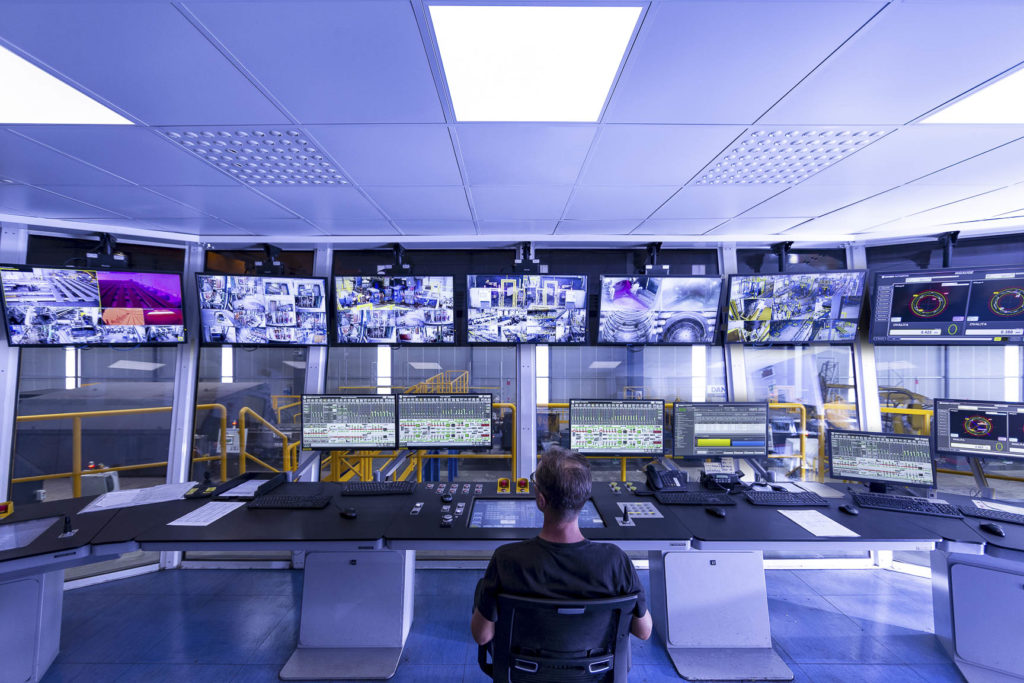
From the intelligent snow system that uses machine learning to the social network to evaluate suppliers. SMACT Competence Center supports the Northeast which innovates through the recent call for proposals dedicated to innovation, industrial research and experimental development: 17 winning projects will be carried out with the co-financing of the Ministry of Economic Development for a total of 1.8 million euros. Social, Mobile, Analytics, Cloud & big-data, internet of Things: these are some of the technological macrothemes behind the projects presented, which will be developed thanks to the union between research and business. For each of them, the announcement has provided for a contribution of up to € 200 thousand for a maximum value of 50%. The total investment, between private individuals and MISEs, is 4 million euros. The support between companies and laboratories is the specificity of SMACT: 24 research groups will work on the co-funded projects and 10 patents related to the projects will be filed.
This is the first call published by Competence Center, the Triveneto center of excellence dedicated to the dissemination of technologies and good digitalization practices for businesses, consisting of a public-private partnership that brings together 40 partners including the eight universities of the Triveneto (University of Padua, Verona, Ca 'Foscari, IUAV, Trento , Bolzano, Udine and SISSA of Trieste), two research centers (Bruno Kessler Foundation and National Institute of Nuclear Physics), the Padua Chamber of Commerce, ComoNExT and some of the most innovative companies in the area.
"The quality of the approved projects is the mirror of a fabric of businesses that not only feels the need for technological innovation but also that of accompanying relationships with the most advanced research that can be found in university departments - he comments Fabrizio Dughiero, chairman of the management board of the Competence Center -. We are already working on the second call, which will be published in the autumn, and on the construction of the Live Demos, the network of thematic centers that will bring technologies to the territories: they will open in Bolzano, Rovereto, Verona, Padua and in various locations in Friuli-Venezia Giulia ».
The winning companies and projects
Wartsila Italy (Trieste) - The HMPO project of Wartsila Italia Spa, a leading company in the construction of large engines, plans to introduce predictive maintenance in production processes thanks to the use of IoT, big data analysis and Analytics as well as Machine Learning. By implementing the possibility of predicting risk situations, the reliability and quality of the finished product increase.
Wartsila's second project, SHEMS, focuses on increasing the efficiency of hybrid systems within naval engines, in abnormal and unpredictable weather conditions. Through Machine Learning processes and simulations of physical models the engine is led to self-regulation. This self-regulation allows for the necessary feedback by rethinking work strategies in real time.
SupplHi Srl (Udine) - SUPPLHI's B2BEST project consists in the development of a platform for supplier management, a sort of social network, within which buyers can share exhaustive evaluations of their industrial suppliers. The involvement of quality criteria, delivery times and supply management, as well as price, enhance the strengths of each supplier and reinforce the network effect between caterers of the same supply chain.
Corvallis (Padua) - The DNI project of Corvallis aims to condense the information deriving from different management systems in a standardized database to allow SMEs to see for the first time information hidden in their data with limited budgets, a prerogative to date only of big companies with big budgets. Currently, companies use different proprietary data structures that make analysis difficult: they own the data but are not integrated to make the best use of it. Building a standard database through the design and development of algorithms will make it possible to streamline the reporting work that today is mostly done manually.
Adige Spa (Levico Terme, TN) - The EMMA project, from Adige, was created to facilitate the testing and assembly of the machines. The machine, taking advantage of a completely digitalized architecture, both as regards the retrieval of assembly information, and as regards the calls to the assembly material, configures itself and interacts with the company ecosystem while it is being built. Through the digitization of the instructions and the processing of data on individual processes and components, the configuration and testing of the machine is speeded up.
Mechanics of Sarca Spa (Dro, TN) - The VENEERESULT project of Meccanica del Sarca allows, through 3D scanning, to verify the quality of the walnut in terms of grain and to rationally decide where to place the cutting template to give life to rifle kicks and rifle. The project plans to enrich a machine learning algorithm, already developed by the Company, by tracing the grain in order to evaluate the best destination of the piece, translating the decision of the algorithm physically on the piece to be worked, through an automatic laser marking system and technologies enabling the rapid search of the piece itself in the warehouse.
Fre Tor (Alpago, BL) - The FVI project wishes to create a new quality control system for surface micrometric visual defects on very high quality mechanical components. The goal is to create a highly flexible system, tending to lot 1, self-configurable and self-learning. Through a highly evolved and performing 3D visualization process it is possible to reconstruct the morphology of the piece, verifying non-conformities with respect to the standard.
TechnoAlpin (Bolzano) - The INTC40 project qualifies as a model of environmental sustainability. In fact, it intends to evolve the management system of the snow-making systems, creating a platform which, through the analysis of big data (data coming from the snow-making systems, from the weather forecasts, from the snow cats ...), is able to work with machine learning algorithms, maximizing snow production and optimizing the use of water and energy resources.
Electrolux Italy (Porcia, PN) - The Electrolux ADDA project aims to contribute to the progressive automation and digitalization of processes within the production environment increasingly dedicated to the development of smart appliances. With particular emphasis on aspects related to artificial intelligence, the ADDA project creates a partnership with the world of research focusing on two specific applications: self commissioning and computer vision.
Schneider Electric (Padua) - The SMACTA project aims to guarantee the credibility and inviolability of data through BlockChain technology to create a platform that allows to provide services throughout the production chain, from the manufacturer to the consumer, based on Smart Contract.
Microtec (Bressanone, BZ) - The CoNNeCT project intends to solve some problems related to Artificial Vision by implementing neural networks so compact that they can be performed directly on the camera hardware. In this way they will be able to perform Computer Vision operations in real time and at very high speed.
Texa (Monastier di Treviso) - The VCI2021 project is particularly innovative because it aims to improve safety in communication between the vehicle, the interface device and the interaction with infrastructures and users, also in view of the increase in autonomous vehicles. TEXA is among the first to deal with cybersecurity applied to vehicles and thus responds to a problem that is not yet there but with which we will have to deal.
Thetis (Venice) - The SAFEST project aims to make monitoring and maintenance of reinforced concrete structures more efficient, especially bridge and viaduct pylons, to minimize the costs of interventions and the risk of failure, through more efficient technical tools such as the use of light sensors mounted on drones capable of video and multispectral shooting and the creation of a framework based on Artificial Intelligence systems capable of automatically recognizing any deterioration.
Danieli Automation (Udine) - The Q3-Premium project is aimed at developing a solution based on an integrated IIOT experimental platform applied to the control and analysis of product quality in the steel industry. The platform is designed to collect large amounts of data from different sources and to provide tools for the development of statistical analysis and predictive models both on-premises and in the cloud. The integration of the insights generated by the data analysis into a real-time rules engine therefore allows the timely detection of potential problems and proactive decision support for the rapid implementation of corrective and preventive actions.
Save (Venice) - The objective of SAVE's S2T2 project is to apply Artificial Intelligence algorithms to the camera system inside the terminal in order to implement advanced passenger flow monitoring processes, with total respect for privacy. Taking advantage of Machine Learning will lead to an overall management of the flow of passengers aimed at monitoring the correct use of airport services, preventing any crowding and queuing and anomalous situations in general, with important benefits both in terms of safety and customer experience for passengers .
Keyline (Conegliano, TV) - Unikey is the project to simplify the management of car fleets in the context of car sharing or company car parks. Creating a radio frequency key that is virtually compatible with any vehicle will increase the smart management capability and, by offering wireless connectivity, will simplify the way of use.
PAM group (Venice) - PAM Group has launched the DD-Rail project with the aim of creating an integrated framework for the management of automatic reordering, and in general of point of sale and warehouse activities related to the supply chain, which uses all data sources available, integrate them through advanced data analytics and artificial intelligence techniques, operate globally, also taking into account external data sources, and integrate perfectly into the company's information system.
All the details and activities of SMACT Competence Center on the site www.smact.cc
Andrea Fasulo






